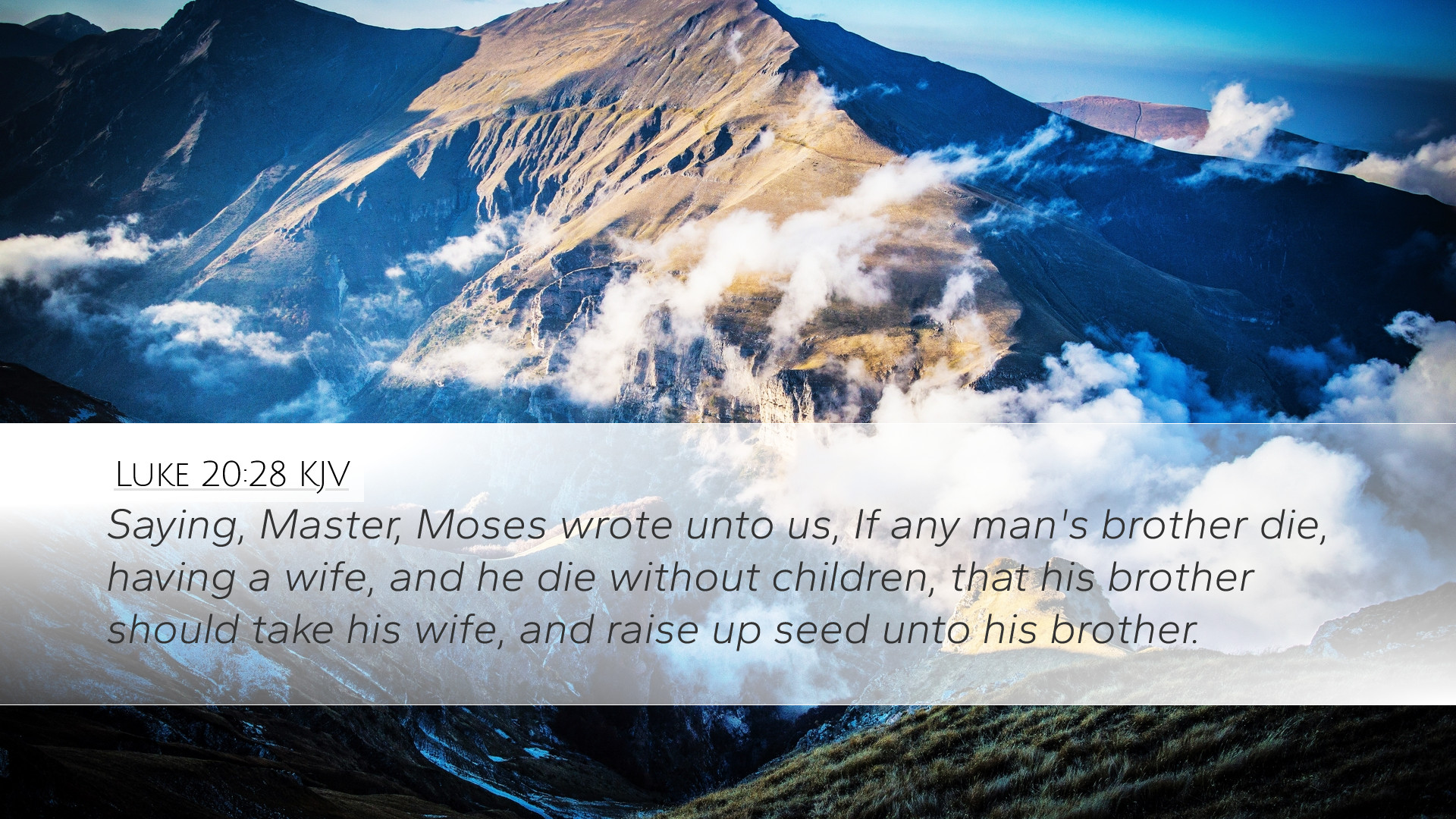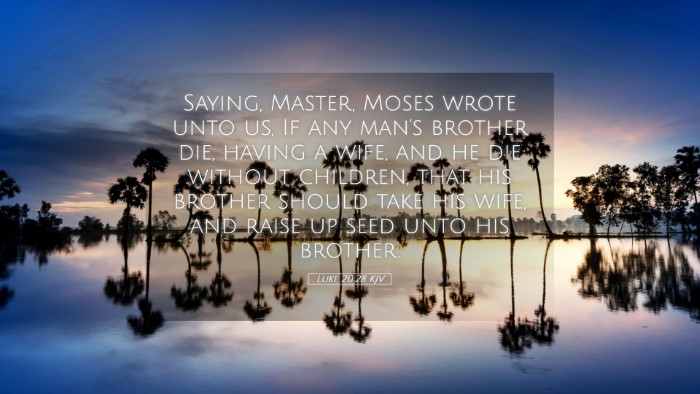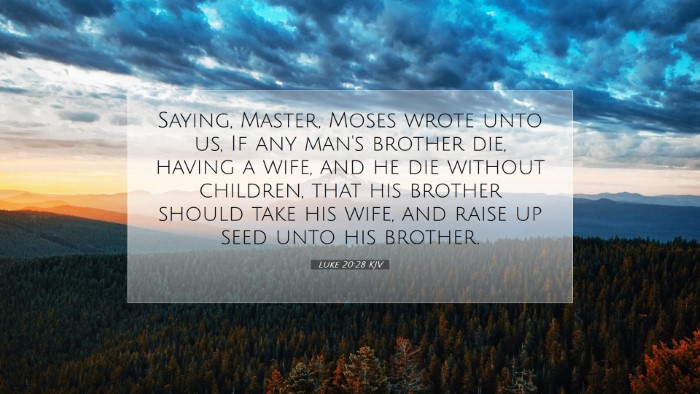Commentary on Luke 20:28
Bible Verse: "And they asked him, saying, Master, Moses wrote unto us, If any man's brother die, having a wife, and he die without children, that his brother should take his wife, and raise up seed unto his brother." (Luke 20:28)
Introduction
This verse is situated within a broader context where the Sadducees, a sect that denied the resurrection, present a hypothetical scenario to Jesus to challenge the doctrine of resurrection. They reference the Levirate marriage law from Deuteronomy 25:5-10, illustrating their theological conflict with Jesus' teachings on life after death.
Context and Background
The Sadducees aimed to undermine Jesus' authority by using scriptural law in a way that highlights what they perceive as the absurdity of resurrection. Understanding this verse requires a grasp of both Jewish marital customs and the doctrinal debates surrounding the resurrection in the Second Temple period.
1. Levirate Marriage
- The custom of Levirate marriage allowed a brother to marry his deceased brother's widow to preserve the family line.
- This law was deeply rooted in the Jewish understanding of families and inheritance, highlighting the importance of continued lineage.
2. The Sadducees' Intent
The Sadducees, often opposed to the Pharisees, sought to trap Jesus in a dilemma that would either deny the law of Moses or undermine the belief in the resurrection.
Theological Insights
Various commentators provide rich insights into this passage:
Matthew Henry’s Commentary
Matthew Henry notes that the Sadducees, although versed in the law, showcased their lack of understanding of God's power over life and death. He emphasizes that their question was both insincere and misguided, signifying that they were unaware of the transformational nature of the resurrection. Henry states:
- "They supposed that marriage was meant for this life only, neglecting the divine power capable of reorganizing familial bonds in the resurrection."
Albert Barnes’ Notes
Albert Barnes critically examines the implications of the Sadducees' question. He indicates that their hypothetical case presents an inconclusive argument against resurrection. Barnes highlights:
- "The Sadducees assumed that earthly relationships, including marriage, would persist in heaven, fundamentally misunderstanding the nature of the afterlife as taught by Jesus."
He further reflects on the emphasis placed upon the resurrection and not on earthly legalities, suggesting that Jesus would redirect their focus to the divine.
Adam Clarke’s Commentary
Adam Clarke provides a detailed perspective on the law of Moses and its role in the Jewish culture intertwined with the resurrection doctrine. He argues:
- "The law delineated by Moses serves a purpose but is ultimately not the definitive word of God regarding the resurrection; it reflects a temporary order that will be fulfilled in a new creation."
- Clarke emphasizes that the Sadducees' failure lies in their materialistic interpretation of the law, which does not account for the spiritual realities of God's kingdom.
Application for Today
Understanding Luke 20:28 is critical for modern readers, especially within pastoral and theological contexts:
- Resurrection Assurance: This discourse invites believers into a deeper understanding of the resurrection—not as a mere theological debate but as a foundational truth that affects how one lives today.
- Misunderstanding of God's Intent: Just as the Sadducees struggled with understanding divine principles regarding life after death, pastors today must strive to teach their congregations about the fullness of God's plan beyond this life.
- Reflection on Relationships: The nature of earthly relationships offers a profound reflection on eternal connections in God’s kingdom, pushing clergy and laypeople alike to consider how they live out their relationships on earth in light of heaven's reality.
Conclusion
Luke 20:28 serves as a pivotal moment where orthodoxy and inquiry collide. Through the lens of historical context, theological implications, and pastoral applications, this verse encourages believers to explore the depths of biblical truth concerning resurrection. By addressing the questions of the Sadducees, Jesus calls to account our assumptions about God’s kingdom, challenging us to grasp the eternal reality that transcends the law.


